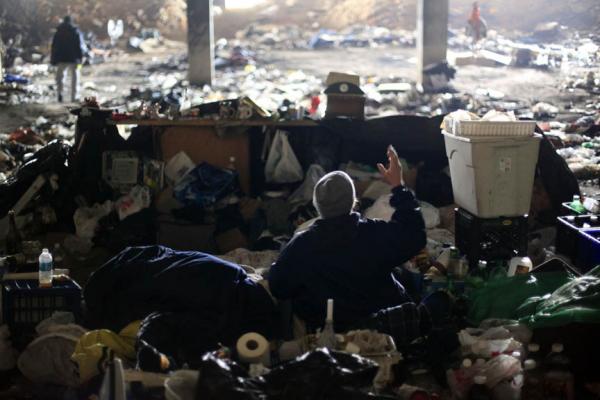Tag: Senator Jon Tester
Tester urges for quick reauthorization as Native American Housing grant initiative advances through the U.S. House of Representatives
Tester Takes a Hard Look at Disaster Relief in Indian Country
Tester Aims to Fight Homelessness Among Native Veterans
Senator Jon Tester is helping to launch a new initiative to fight homelessness among Native American veterans.
Native Americans volunteer for America’s military at some of the highest rates in the nation, but Indian veterans often struggle to get the support services they earn – including safe, affordable housing.
Tester, Montana’s only member of both the Senate Veterans’ Affairs and Indian Affairs Committees, is working to change that by helping to add a provision to a funding bill that calls for new initiative to reduce homelessness on tribal lands.
Tester’s initiative would make HUD-VASH funds – which help veterans find housing arrangements where they also are able to receive additional resources to address the root causes of homelessness – available to Native Americans living on tribal lands. It is estimated that at least 2,000 veterans served by VA homeless programs live on tribal lands.
“Native Americans are some of this nation’s most dedicated military men and women, and they shouldn’t have to struggle with homelessness when their service is over,” Tester said. “This initiative will help more veterans get a roof over their heads and the support they need to get back on their feet and contribute to our communities.”
The U.S. Department of Housing and Urban Development provides the housing vouchers through the HUD-VASH program and works with local housing and support groups to provide eligible homeless veterans with services that aid recovery from physical and mental health conditions resulting from homelessness. However, tribally-designated housing entities are currently ineligible to receive and administer these vouchers.
As a member of the Appropriations Committee, Tester pushed for HUD-VASH funds to be made available to tribal housing authorities to assist Native American veterans in securing safe, reliable housing. The committee is responsible for funding the federal departments and agencies, including the Department of Housing and Urban Development.
Tester became the Chairman of the Senate Indian Affairs Committee earlier this year. Since then, he has held hearings on Indian health, tribal transportation, Indian education, energy development, and trust lands.
The funding bill, which passed the Appropriations Committee recently, will next be considered by the full Senate.
Read more at http://indiancountrytodaymedianetwork.com/2014/06/11/tester-aims-fight-homelessness-among-native-veterans-155242



